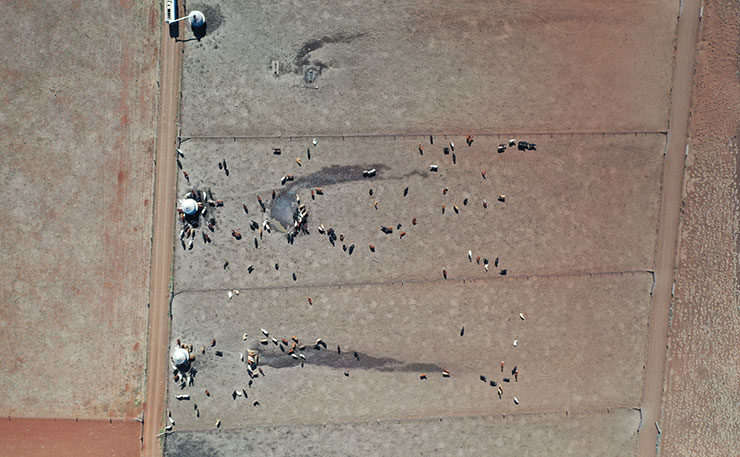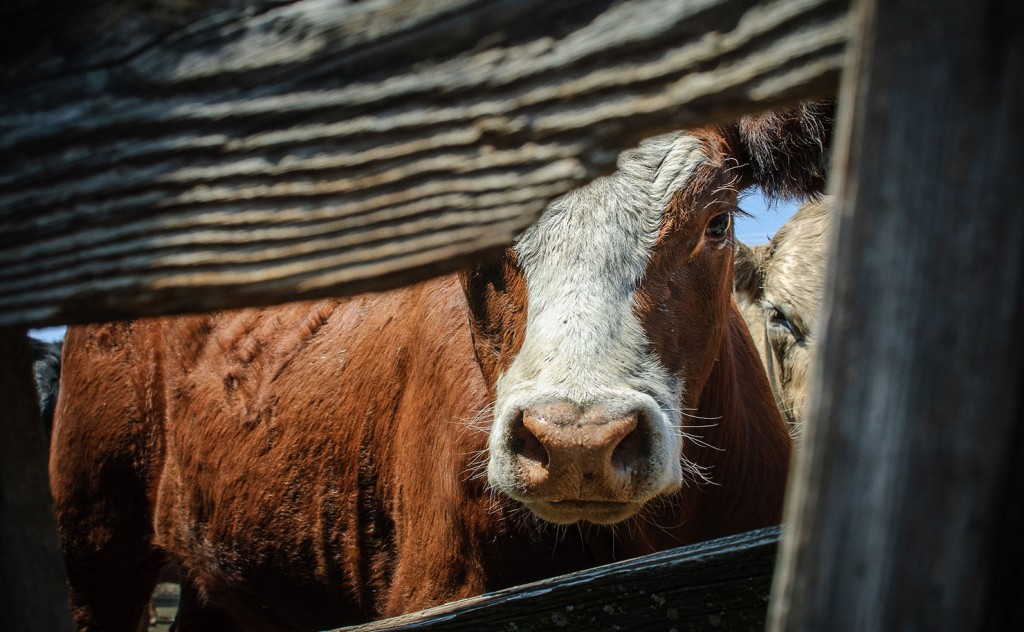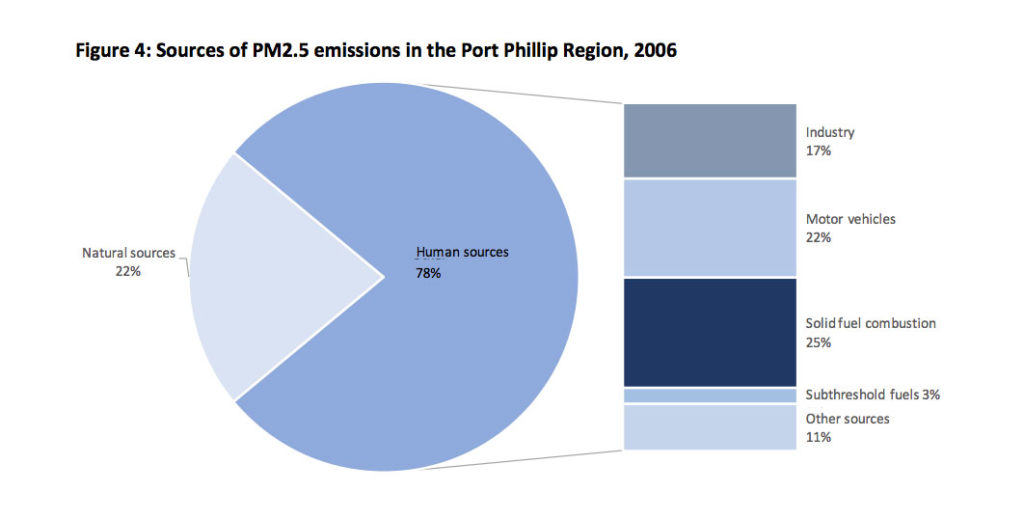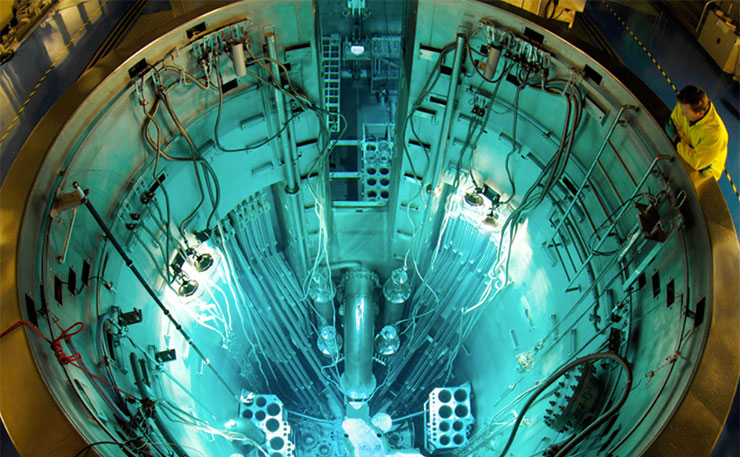DON’T MISS ANYTHING! ONE CLICK TO GET NEW MATILDA DELIVERED DIRECT TO YOUR INBOX, FREE!
When arguments against nuclear power to tackle climate change are focussed almost entirely on cost, you know someone has lost the scientific debate. Geoff Russell weighs in on a nuclear inquiry that’s failing to capture imaginations, or much carbon.
Submissions to the website of the Federal Government’s Inquiry into the pre-requisites of nuclear energy in Australia closed over a month ago, and they are dribbling out onto the inquiry website. As I write there are 281 in total (including some with appendices).
This is a national inquiry on one of the most fractious issues in Australian politics for over 40 years. But only 281 people and organisations could be bothered with it. In contrast, the Victorian Parliament’s Inquiry into the impact of animal activism on Victorian agriculture has 491 submissions; just one state but many more submissions.
On my reading, 39 percent oppose nuclear power and want the bans to stay, while 54 percent support nuclear power and want the bans lifted; the rest are neutral. The neutral submissions are mostly Government departments but include a few other organisations who are responding strictly to the terms of reference, describing the legislative and other prerequisites; but without taking a clear side.
BE PART OF THE SOLUTION: WE NEED YOUR HELP TO KEEP NEW MATILDA ALIVE. Click here to chip in through Paypal, or you can click here to access our GoFundMe campaign.
The stronger interest in the animal activism inquiry might be viewed as just an anomaly, but I think it signals a shift in progressive thinking; it’s actually becoming progressive.
Anybody following Greta Thunberg’s simple plea of “listen to the science” would, like her, be vegan… or close; they’d at least end up in a wanna-be vegan state. Even the CSIRO, not just a friend of the meat industry, but frequently on the payroll, seems to be listening to the science.
It’s developed a plant-based meat replacement for Hungry Jack’s; i.e., yet another plant-based food for recalcitrant meat lovers. That’s not, of course, how the developers describe it; they are promoting it as a global sustainability mission. Here’s what they say on their v2food website:
“Food is the single strongest lever to optimise environmental sustainability on Earth.” That’s the opening line of the Eat Lancet Report on planetary health; penned by over 30 world-leading scientists.
And:
“We’re on a mission to feed our planet in a way that takes care of our planet”.
Even The Economist gets it. It had an entire issue on climate change recently and it’s been following the development of planet-friendly plant-based alternatives to meat for some time. It’s latest article on plant-based meat alternatives describes techniques now being used to more accurately mimic meat textures. Today’s plant-based burgers can already fool both lay people and those who think they are experts; the next set of products will be tackling the much harder problems of various meat textures.
The producers of these products understand the mindset of old-school greenies who kind-of want to save the planet, but not enough to interfere with BBQ habits of a lifetime. So they aim to give them what they want, but using plants. They also understand that some people simply don’t care but will buy anything they like if the price is right.

Vegans are a little different; many are cynical about slick marketing campaigns from self-proclaimed environmental organisations telling people that everything is easy, you don’t need to do much except carry your own coffee mug and shopping bags, stick solar panels on your roof, stop using straws and, most importantly, keep sending in those monthly donations.
The fact that these organisations support meat but claim to care about the climate sends a clear message about both hypocrisy and irrationality.
Most vegans also understand that science has been demonstrating for decades that animals are very much like us. People used to think it was unscientific to attribute feelings and emotions to animals, but now we know it is unscientific not to. New Scientist magazine recently editorialised that experimenting on animals to find out how they think was becoming tough to defend; precisely because of what we already know about how they experience the world… pretty much like us.
So the world is changing and the old-school environmental organisations are way behind the curve.
Moving meat
Even traditional big meat companies, like Tysons in the US, are getting into the act. They are no doubt acting selfishly rather than altruistically, but they are producing their own meat replacements. ‘But these are meat companies,’ you might be thinking. I’m guessing that traditional supporters of killing industries are pretty heavily money-focused and will follow wherever it leads. Do they actually give a damn about supporting meat workers, slaughterhouses and feedlots? I doubt it.
Tyson was an early investor in Beyond Meat, but these days the multi-billion dollar fledgling is looking to turn the tables. According to the Australian Financial Review, Beyond Meat boss Ethan Brown is now saying: “I don’t want to collaborate with them, I want to be them.”
But Australia’s big environmental organisations aren’t just non-vegan, but pro-animal agriculture. Some like the Australian Conservation Foundation and the leader of the Australian Greens, are actively in-bed with Australia’s largest ‘climate forcers’, the cattle industry. They may as well use lumps of coal for gavels at their meetings.
Their environmental irresponsibility stems from an underlying anti-science mindset, which drives them naturally toward plans to save the planet by reducing either consumption or population. A little quantitative thinking shows that neither strategy can possibly work in the time frame available.

Neither austerity nor the black death can work fast enough or deep enough. Population control has been astonishingly successful over the past 50 years, with the number of children per women dropping globally from over 5 to under 2.5; it’s a wonderful achievement and it must continue, but it’s not enough. The climate emergency is something we have to face head on and fix.
But our environmental organisations are stuck in a time warp welded to their traditional campaigns and marketing hype. Marketing should be in the service of policy, not the other way around.
Consider, for example, the word: renewable. From a marketing perspective it’s been brilliant, but from a factual perspective? It’s pure shite. Wood is renewable. Globally, about 3 billion or so households still cook with it; and the smoke poisons their children and they die. The overall death toll is about 4 million deaths a year; about half are children under five. Praise for renewable energy is now seeing travesties like the Drax power plant in the UK being subsidised to burn forests felled mainly in Canada and the US, before been shipped to the UK.
Not only is wood an environmental disaster and a major killer of poor people, it’s an equal opportunity killer too. Australians who’ve swallowed the natural renewable marketing hype are killing people with their gullibility.
Consider those who go weak at the knees at the sight of the “natural” label on wood stoves. During 2017/18, the few people around Port Phillip in Victoria using these heaters during the cold months of the year generated annually more of the deadly PM2.5 fine particle pollution than all the cars in the region combined.

But “renewable” isn’t just a poor choice of word because it doesn’t capture what is important about energy sources. It is also deeply dishonest. The source of solar energy is obviously the sun; which is certainly free, and near enough to being renewable. BUT, and it’s a massive BUT… the resources used to harvest and store the sun’s energy are anything but renewable; they are finite, they are mined, they are processed and the supply chains behind the products cause real world social and environmental impacts, and some pretty nasty waste streams.
The intermittent nature of solar and wind power means that batteries are a matter of necessity, not choice, and batteries create yet more mines and again, some really genuinely dangerous waste problems along the entire supply chain.
Of 510 fires in the UK in 2017-8 in the waste management sector, 25 percent were attributed to Li-Ion batteries.
To pretend that solving our energy problem is simply a matter of rolling out renewables is delusional and dangerous.
The full story on the scientific illiteracy and integrity of our mainstream environmental organisations is glaringly obvious if you look at their various submissions to the Federal nuclear inquiry and note their lack of any submission to the Victorian animal activism inquiry.
Most people can spot a bad argument if you put it in a familiar context. So here’s an analogy that illustrates how bad the best of the anti-nuclear submissions are.
Consider two reports into the safety of air travel. The first lists all the various accidents going back to the Wright brothers. It lists every death, and injury, every mechanic screw-up and corrupt practice; real as well as alleged. Every near miss along with the anguish of the victims (or almost-victims) is catalogued. If done well, with skills honed by decades of practice, it could be terrifying!

The second report just calculates the per passenger kilometre risk of death or injury in an air crash and compares it with the equivalent risk of death or injury in other forms of transportation.
Ho-hum, despite the terror of the first report, planes turn out to be incredibly safe; meaning that you are extraordinarily unlikely to die in one, or have one fall on you. The same is true of nuclear power.
Our mainstream environment movements have been cut and pasting successive reports of the first kind on nuclear power for decades, but I suspect perhaps people are finally waking up. These reports fooled many people for a very long time, including me.
For decades a substantial number of Australians have been irrationally terrified of radiation and nuclear power; but not air travel. The deception saw Australia stick with coal rather than go with nuclear as our primary energy source. How many people have been killed by the resulting fossil fuel pollution? Nobody has bothered to find out.
We never rationally looked at the relative risks of coal and nuclear because nuclear was simply the devil’s spawn.
Traditional fear-based anti-nuclear reports aren’t just dishonest, but deadly.
After the Fukushima meltdowns, the Government and people of Japan were terrified; as decades of anti-nuclear propaganda had intended. Instead of trusting the expert scientific judgement of the IAEA guidelines, they evacuated 150,000 people, killing a thousand or so. And then, to compound the tragedy of the evacuation, they left their other reactors off… and made up the energy shortfall with fossil fuels.

The air pollution that this decision generated has been killing people ever since.
So what’s the cost of this fear and ignorance driven by our traditional environment movements and their dodgy reports?
The latest science, September 2019, puts the toll at 23,300 people. That’s the number who have died because of the Japanese Government’s pandering to people who let slogans drive policy instead of facts and science.
Does the ACF care about these 23,300 deaths? Do the Greens? Do Friends of the Earth or The Australia Institute, or any of our anti-nuclear trade unions? If they did they’d be pleading with the Japanese Government to turn their nuclear reactors back on.
I challenge Richard Di Natale and every other leader of an anti-nuclear organisation in Australia to show some compassion and write to the Japanese Government; tell them to restart their clean energy system.
I suspect Di Natale’s attachment to the Hippocratic oath is perhaps exceeded by his much stronger attachment to anti-nuclear ideology.
There’s thousands more deaths in Germany due to the early closure of nuclear plants. Di Natale might like to write to them also. The German Greens have been killing Germans by favouring energy sources which kill people (coal) over those which don’t (nuclear) for a decade or so also. When you build a movement founded on irrationality, what would you expect?
Climate concern clash
The irrational opposition to nuclear power also clashes with any concern for the climate. The Japanese CO2 emissions have also risen in response to their choice to leave their nuclear plants idle. Again irrationality on one issue leaves you floundering on others.
So what sort of submissions did old-school environment groups like ACF and Greenpeace make to the Federal nuclear inquiry? They stuck to the play book. Interestingly, a few anti-nuclear groups ignored fear and focused on costs.
For example, The Australia Institute (TAI) submission was 42 pages; with just one page on waste, one page on water and almost everything else was about money.
TAI isn’t alone in worrying about water; but their single page with its five references sets a high bar for lazy and sloppy. It’s like TAI wrote their submission on a google-free computer. They could have just googled “air cooled thermal power plants”. But they didn’t.

Who remembers the Beyond Zero Emissions Zero Carbon Australia Stationary Energy Plan? For almost a decade it’s been held up by mainstream environmentalists as a model of what we should be doing. Its backbone was to be a bunch of solar thermal power stations with molten salt storage.
Note the word thermal.
A thermal power station is one that uses a steam powered turbine to drive a generator. In this case, the steam comes from water boiled by an array of mirrors pointing at a central tank. Coal power stations are also thermal, as are nuclear power stations.
Thermal power stations do mostly use water as cooling. But can they use air? BZE thought so. It listed an efficiency performance penalty of 1.3 percent for doing so. It relied on a US Department of Energy Study in support of its claims.
Did any of the many BZE fans actually read the report? Did they check the references? Not if the submissions to the nuclear inquiry are a guide. That report reckons the issues and penalties for using air cooling on solar thermal plants are the same as for nuclear or coal plants.
You can indeed air-cool any damn thermal power plant if you want to and if you google “air cooled power plants” you’ll find them all over the world. China has been rolling them out en-masse next to her inland coal mines for some time. One of South Africa’s biggest coal power plants, Matimba is both massive and air cooled; it’s 3,900 MW. When was it built? 1993.
But the focus on cost in the rest of TAI’s report is still weird. Are there any other examples of clean technology that the Australia Institute would like banned because they think it’s too expensive?
A Tesla Model S, P100D can cost you up to $AU200,000 (batteries included); with even more expensive models in the pipeline. Wagyu beef can cost $500/kg; not bad for a planet crushing artery clogging (probable) carcinogen. I’d happily call for a ban on the beef, but not because of the cost!
The nuclear inquiry submissions deserve a full analysis, but the shift in activism away from nuclear obsessions is interesting.

Greta Thunberg isn’t just vegan but comes from a country which decarbonised its electricity with nuclear and hydro decades ago. She’s been working with George Monbiot, who threw off his anti-nuclear shackles when he realised their irrational conspiracy theory roots back in 2011. The Australia Institute, in contrast, is heavily tied up with the cattle business; Australia’s largest ‘climate forcing’.
The Poola Foundation funded much of TAI’s early growth and is still funding it’s work. Mark Wootton (a founder of the Poola Foundation) and partner Eve Kantor also made a submission to the Victorian animal activism enquiry; as a cattle producer, you can guess which side he was on. Wootton claims to run a carbon negative cattle farm. Claims about cattle farms helping the climate via soil carbon are so common and so wrong that the climate denier argument smashing website ‘Skeptical Science’ has a nice section on it.
One of the best submissions to the nuclear enquiry came from WIN, Women in Nuclear, an international association with thousands of women who have worked out that nuclear power is critical in the fight to restabilise the climate.
The International Energy Agency agrees. Earlier this year it released a report calling for the current nuclear decline to be halted and reversed. They pointed out that wind and solar had added 580 GW of capacity in advanced economies over the past 20 years, but that if the decline in nuclear power continued, the growth in wind and solar over the next 20 years would have to be five times greater; just to stand still. Meaning we’d have no net reductions in greenhouse emissions.
Do the old environmental organisations give a damn? Judging by their submissions to the Federal inquiry, the answer is no.
The women in WIN want to fight climate change and they’ve realised that nuclear technology is simply the best source of energy. It isn’t just Greta Thunberg trying desperately to teach the old boys new tricks.
BE PART OF THE SOLUTION: WE NEED YOUR HELP TO KEEP NEW MATILDA ALIVE. Click here to chip in through Paypal, or you can click here to access our GoFundMe campaign.
Donate To New Matilda
New Matilda is a small, independent media outlet. We survive through reader contributions, and never losing a lawsuit. If you got something from this article, giving something back helps us to continue speaking truth to power. Every little bit counts.




